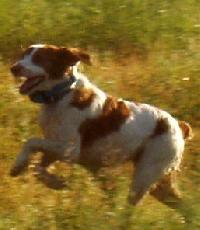Voice recognition: Would you recommend a method to use it for translation? Thread poster: megane_wang
|
|---|
megane_wang 
Spain
Local time: 22:21
Member (2007)
English to Spanish
+ ...
Hello,
I just purchased Dragon Naturally Speaking and have used for a few hours with what seems to be a very good result.
... But: I feel that I will need to spend some more effort than usual to "edit" my translation when I proofread it. I think that's due to the fact that I'm not used to dictate but when I started using this tool I noticed that the resulting style was different than usual (ayee!).
Have any of you who use this kind of software noticed that ... See more Hello,
I just purchased Dragon Naturally Speaking and have used for a few hours with what seems to be a very good result.
... But: I feel that I will need to spend some more effort than usual to "edit" my translation when I proofread it. I think that's due to the fact that I'm not used to dictate but when I started using this tool I noticed that the resulting style was different than usual (ayee!).
Have any of you who use this kind of software noticed that at the beginnig? In that case, could you tell your experience and how did you approach that?
I'm quite fast at typing but I absolutely appreciated both the speed and getting always a "corrected" text. I noticed that this last point is, though, also a problem, because a wrongly recognized term may be more difficult to spot than a typo that a spell checker may find immediately.
In any case, I loved this new "toy", and hope I can recover my style with some practice...
... any experience about that?
Thanks for sharing!!
Ruth @ MW
[Edited at 2007-10-11 09:09] ▲ Collapse
| | | | | Voice-Recognition Tips | Oct 11, 2007 |
megane_wang wrote:
when I started using this tool I noticed that the resulting style was different than usual (ayee!).
Certainly, your style will change a bit when you dictate. I think it is probably for the better in most cases because it is harder to fall into convoluted translationese when you actually have to speak the words.
wrongly recognized term may be more difficult to spot than a typo that a spell checker may find immediately.
After a while, you should get a sense of where Dragon tends to make mistakes. It is usually with the small words like "a" "an" "the" and "in", or the occasional creative rhyme or false homophone.
Dragon, as has been said before, works on the probabilities of words appearing together, and there are the few things you can do to stack the odds in your favor. Beyond getting a quality microphone (which makes all the difference), get in the habit of speaking in phrases. Dragon does not do well with single words; it needs context.
Also, prep work is half the battle. Spend some time editing the vocabulary and adding commonly-used phrases or phrases that you know are going to appear repeatedly in whatever job you are working on at the moment. As I understand it, the order that Dragon uses when converting speech to text is to look at commands first, followed by user vocabulary and then built-in vocabulary, so all else being equal, it will tend to choose your phrases over some of the nonsense it would otherwise spit out.
While you are playing with the Vocabulary Editor, it pays to familiarize yourself with the "Properties" button, which will allow you to change how Dragon handles what it hears. For example, I was consistently getting a misrecognition of "this shall not" as "they show not," which is not a happy occurrence if you are translating contracts. Repeated corrections did nothing to solve the problem. What did solve it was to input "they show not" as a vocabulary word and then use the Properties panel to tell Dragon to type the alternative form "this shall not" instead. Problem solved, Dragon hears what it wants, I see what I want. You can use similar techniques to solve random capitalization (on the Properties panel specify that the lowercase form be used even if Dragon thinks it hears the capitalized) or to make sure you get properly formatted names, terms and abbreviations.
| | | | Claire Cox
United Kingdom
Local time: 21:21
French to English
+ ...
| Practice makes perfect | Oct 11, 2007 |
I think it's something that comes with time. You probably just feel self-conscious at first, but you soon get used to it. I used to dictate (into a dictaphone) years ago when I first started working as a in-house translator, but it soon became second nature - and very much quicker than my typing. When I acquired DN at the start of this year, I soon got back into it, even if it's taken the children longer to realise that I'm dictating, not talking to myself! Stylewise I haven't noticed any differ... See more I think it's something that comes with time. You probably just feel self-conscious at first, but you soon get used to it. I used to dictate (into a dictaphone) years ago when I first started working as a in-house translator, but it soon became second nature - and very much quicker than my typing. When I acquired DN at the start of this year, I soon got back into it, even if it's taken the children longer to realise that I'm dictating, not talking to myself! Stylewise I haven't noticed any difference, but then I suppose I was already used to dictating. As you say, you do have to watch it for misrecognised terms which won't be picked up by a spellchecker, but that's a small price to pay. ▲ Collapse
| | | | Giulia TAPPI 
France
Local time: 22:21
French to Italian
+ ...
I am really very happy with DNS; nevertheless, I correct my text after each paragraph. I think it is much easier, because you know exactly what you have just said, so terms which have not been recognized appear clearly to you.
Hope this can help you,
Giulia
| | |
|
|
|
megane_wang 
Spain
Local time: 22:21
Member (2007)
English to Spanish
+ ...
TOPIC STARTER | Thanks to you all | Oct 11, 2007 |
Hello!
Thanks for sharing, those have been interesting comments, and I also see that I'm not "too strange"
Richard Walker wrote:
While you are playing with the Vocabulary Editor, it pays to familiarize yourself with the "Properties" button, which will allow you to change how Dragon handles what it hears. For example, I was consistently getting a misrecognition of "this shall not" as "they show not," which is not a happy occurrence if you are translating contracts. Repeated corrections did nothing to solve the problem. What did solve it was to input "they show not" as a vocabulary word and then use the Properties panel to tell Dragon to type the alternative form "this shall not" instead. Problem solved, Dragon hears what it wants, I see what I want. You can use similar techniques to solve random capitalization (on the Properties panel specify that the lowercase form be used even if Dragon thinks it hears the capitalized) or to make sure you get properly formatted names, terms and abbreviations.
That's good to know. I actually spent little time learning how to use it (deadlines...), and yes, I also found a couple of words DNS does not like too much. For example (I use it in Spanish), I could not convince it to recognize "celda" (cell), in a text that described a software and the various functions it offers to be applied to some spreadsheet-like data lists (copy-the-cell..., move-the-cell..., click-on-the-cell... and so on)!!

Thanks once again.
Ruth @ MW
[Edited at 2007-10-11 09:38]
[Edited at 2007-10-11 09:39]
| | | |
Giulia TAPPI wrote:
I am really very happy with DNS; nevertheless, I correct my text after each paragraph. I think it is much easier, because you know exactly what you have just said, so terms which have not been recognized appear clearly to you.
Hope this can help you,
Giulia
I wasn't keen to try DNS - although I'd spent years dictating for two secretaries at my law firm in South Africa - I just didn't trust the hype about voice recognition. However increasing problems with my wrists meant I had to try and make the transition before permanent damage set in.
Sounds corny, but it has changed my life (as far as translation and other legal work goes, before I get carried away .....).
Productivity is way up, I'm not as tired at the end of the working day and the shooting pains I suffered are a thing of the past.
I use it, where possible, with Trados and edit each segment as I go along, with a final thorough proofreading at the end.
Persevere with the "growing pains" and it will be money very well spent, you'll see.
| | | | Patricia Rosas 
United States
Local time: 13:21
Spanish to English
+ ...
In memoriam | correct as you go | Oct 11, 2007 |
Giulia TAPPI wrote:
I am really very happy with DNS; nevertheless, I correct my text after each paragraph. I think it is much easier, because you know exactly what you have just said, so terms which have not been recognized appear clearly to you.
Hope this can help you,
Giulia
I never expected DNS to replace the tasks of checking, correcting, and polishing. I watch what is going up on the screen, and if I see an error, I correct it then and there. The only exception is when there are consistent errors. For example, yesterday, I was translating footnotes, and "p." appeared as "page" everytime, so I just let that go and then corrected it at the end.
As another person said, practice has improved my output.
Finally, I like being able to sit back and consider the whole sentence or even the whole paragraph before I begin dictating. When I type, somehow, my fingers just keep going and I follow the sentence structure of the original. DNS moves me away from that.
So, I agree with Lawyer-Linguist: persevere, and you'll get through the learning curve.
| | | | | Better performance over time | Oct 11, 2007 |
What you describe is classic. This is what happened to all of us - at first.
If you don't take a moment to correct the pronunciation of words in Dragon's dictionary, then it will not "learn" from you in order to become more accurate over time. You have a few functions (that you can call by voice command) which allow you to correct the pronunciation on the fly. By using these functions, I got to train Dragon in about two weeks of use. While it will never be perfect (remember, Dragon ... See more What you describe is classic. This is what happened to all of us - at first.
If you don't take a moment to correct the pronunciation of words in Dragon's dictionary, then it will not "learn" from you in order to become more accurate over time. You have a few functions (that you can call by voice command) which allow you to correct the pronunciation on the fly. By using these functions, I got to train Dragon in about two weeks of use. While it will never be perfect (remember, Dragon hears what you say, but doesn't understand it, so it is bound to misinterpret your words), it will eventually get to a point where it will make about one error per page. That is more than acceptable, especially if you consider that the errors that Dragon makes because it misinterprets what you say are more than made up for by the typing errors that Dragon never makes. So instad of having a few typos like you used to have before, now, you will have one misintepretation error.
My trick to train it so it definitely hears what I am saying is to not only correct the recognition of the word I wanted it to type, but also correct the recognition of the word it typed by mistake, so Dragon can appreciate the difference between the two.
In any case, I do hope you proofread your translation before sending it to the client. If you do, then using Dragon will only speed up the process instead of slowing it down.
Just remember to keep using the spelling and correction features - if you do, after a while, you will hardly ever need to use them anymore.
[Edited at 2007-10-11 16:30] ▲ Collapse
| | |
|
|
|
megane_wang 
Spain
Local time: 22:21
Member (2007)
English to Spanish
+ ...
TOPIC STARTER | Thanks again ! | Oct 11, 2007 |
Viktoria Gimbe wrote:
My trick to train it so it definitely hears what I am saying is to not only correct the recognition of the word I wanted it to type, but also correct the recognition of the word it typed by mistake, so Dragon can appreciate the difference between the two.
That seems a good idea indeed!
Viktoria Gimbe wrote:
In any case, I do hope you proofread your translation before sending it to the client. If you do, then using Dragon will only speed up the process instead of slowing it down.
...
Yes, I proofread it 2-3 times in different ways, so that I really expect to catch those recognition failures. In fact, after 2 days using it I'm planning to invest some of the typing time I save (quite a lot!) to improve my quality checks
Thanks!!
Ruth @ MW
[Edited at 2007-10-11 18:32]
| | | | | Keyboard usage | Oct 11, 2007 |
Hi everybody!
Nice discussion! It got my interest in DNS sparked again after I had already given up on it. Maybe I will give it another try...
I bought my version of DNS a few months ago because I felt early signs of repetitive strain syndrom on both arms (due to too much key pressing and mouse clicking), and I had hoped DNS would be the solution to this problem. After the initial setup and a few test rounds I pretty soon gave up on it because I still had too use the k... See more Hi everybody!
Nice discussion! It got my interest in DNS sparked again after I had already given up on it. Maybe I will give it another try...
I bought my version of DNS a few months ago because I felt early signs of repetitive strain syndrom on both arms (due to too much key pressing and mouse clicking), and I had hoped DNS would be the solution to this problem. After the initial setup and a few test rounds I pretty soon gave up on it because I still had too use the keyboard and the mouse a lot. I work with Trados most of the time, so I need to press the key combinations for opening segments in Trados, closing them, opening new ones, etc. Then I need to switch to different browser windows, such as online dictionaries to look up words, Google to do other research, etc. Again, I need to use my keyboard and my mouse. Am I doing anything wrong? Are there commands that tell DNS to place the cursor at a specific location, commands that combine certain keys to the combinations needed for Trados, commands that make Firefox switch between tabs?
How do you do it? How do you avoid using your mouses/keyboards?
Thanks in advance!
Stefanie ▲ Collapse
| | | | | Use professional | Oct 11, 2007 |
Stefanie Sendelbach wrote:
Are there commands that tell DNS to place the cursor at a specific location, commands that combine certain keys to the combinations needed for Trados, commands that make Firefox switch between tabs?
How do you do it? How do you avoid using your mouses/keyboards?
I don't know that you'll ever entirely avoid using the keyboard and mouse, or even if doing so would be terribly efficient, but you can free yourself from Trados commands and common mouse/keyboard tasks by stumping up for the professional version of DNS and programming some simple macros (or complex if you feel creative).
Personally, I find it silly to be dictating the translation and then put my hands on the keyboard to type alt+ at the end of each sentence. Much better to pace about the room dictating and say "next unit" when I'm done.
By the way, placing the cursor at a specific location is as easy as saying "insert [before/after] [word]" if you are in MS Word. Doesn't work very well in TagEditor, but that's Trados' fault more than DNS'.
| | | | To report site rules violations or get help, contact a site moderator: You can also contact site staff by submitting a support request » Voice recognition: Would you recommend a method to use it for translation? | CafeTran Espresso | You've never met a CAT tool this clever!
Translate faster & easier, using a sophisticated CAT tool built by a translator / developer.
Accept jobs from clients who use Trados, MemoQ, Wordfast & major CAT tools.
Download and start using CafeTran Espresso -- for free
Buy now! » |
| | Wordfast Pro | Translation Memory Software for Any Platform
Exclusive discount for ProZ.com users!
Save over 13% when purchasing Wordfast Pro through ProZ.com. Wordfast is the world's #1 provider of platform-independent Translation Memory software. Consistently ranked the most user-friendly and highest value
Buy now! » |
|
| | | | X Sign in to your ProZ.com account... | | | | | |











